- Empty cart.
- Continue Shopping
Njaval (Seedess)
Original price was: ₹750.00.₹350.00Current price is: ₹350.00.
Genus : Syzygium cumini
Experience the exotic delight of seedless Njaval fruit! This tropical plant produces juicy and flavorful fruits without the hassle of seeds. With its vibrant foliage and delectable taste, it makes a perfect addition to home gardens. Don’t miss the opportunity to grow this unique and delicious fruit plant. Order now and enjoy the bountiful harvest
Njaval, also known as Java Plum, Black Plum, or Syzygium cumini, is a tropical fruit tree that is native to South Asia. It is known for its juicy and flavorful fruits, which are typically dark purple to black in color when ripe. Here is a more detailed description of Njaval (Seedless):
- Tree: Njaval is a medium-sized evergreen tree that can reach a height of 10-20 meters (33-66 feet) with a dense, spreading canopy. The tree has a straight trunk with smooth, grayish-brown bark that becomes rough and fissured with age. The leaves are simple, opposite, and elliptical to oblong in shape, with a glossy dark green color.
- Flowers: Njaval produces small, fragrant flowers that are usually white or pale yellow in color and are borne in clusters. The flowers are typically bisexual, meaning that they have both male and female reproductive organs, and are usually pollinated by bees or other insects.
- Fruits: The fruit of Njaval is the main attraction of the plant. It is a drupe, which means it has a single seed surrounded by a fleshy pulp. The fruit is typically round to oblong in shape, with a diameter of about 2-4 cm (0.8-1.6 inches), and has a smooth, shiny skin that is initially green and turns dark purple to black when fully ripe. The pulp is juicy and sweet, with a tangy flavor that is often compared to a combination of plum and grape. The fruits of some cultivars of Njaval are seedless or nearly seedless, making them convenient for consumption.
- Habitat: Njaval is typically grown in tropical and subtropical regions with warm climates. It prefers well-drained soils and is often found in lowland forests, along riverbanks, and in other moist areas.
- Uses: Njaval fruits are commonly eaten fresh, and they are also used in making juices, jams, and jellies. The fruit is rich in antioxidants, vitamins, and minerals, and is considered to have several health benefits. The leaves, bark, and seeds of Njaval tree are also used in traditional medicine for various purposes, such as treating diabetes, diarrhea, and skin ailments.
- Cultivation: Njaval is propagated through seeds or cuttings. It requires a warm, tropical climate with abundant rainfall and well-drained soils. The tree is generally low-maintenance and can tolerate a range of soil types. It usually starts bearing fruits after 4-6 years of growth, and the fruits ripen during the summer months.
In conclusion, Njaval (Seedless) is a tropical fruit tree known for its juicy and flavorful fruits. It is typically grown in warm climates and has culinary and medicinal uses. The fruits are typically dark purple to black when ripe, and some cultivars are seedless or nearly seedless, making them convenient for consumption.





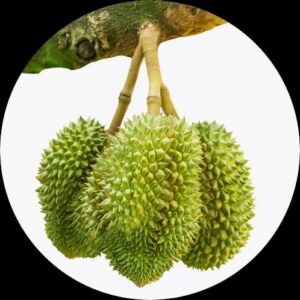
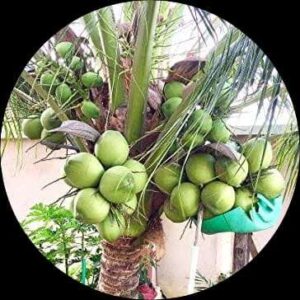
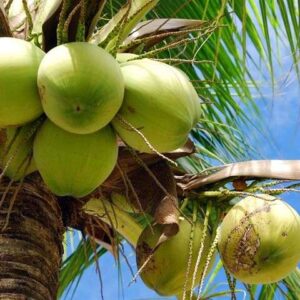
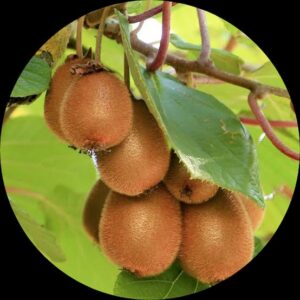
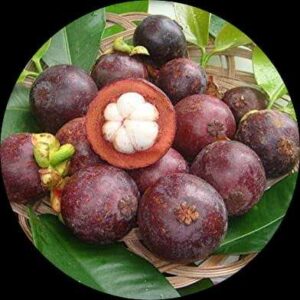
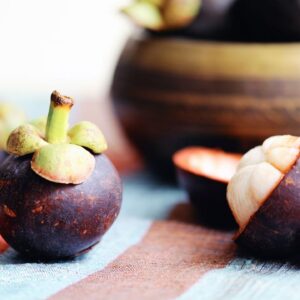
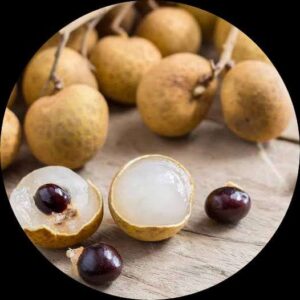
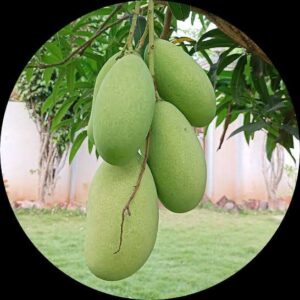
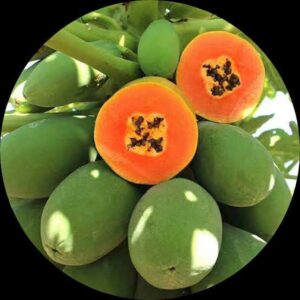
Reviews
There are no reviews yet.